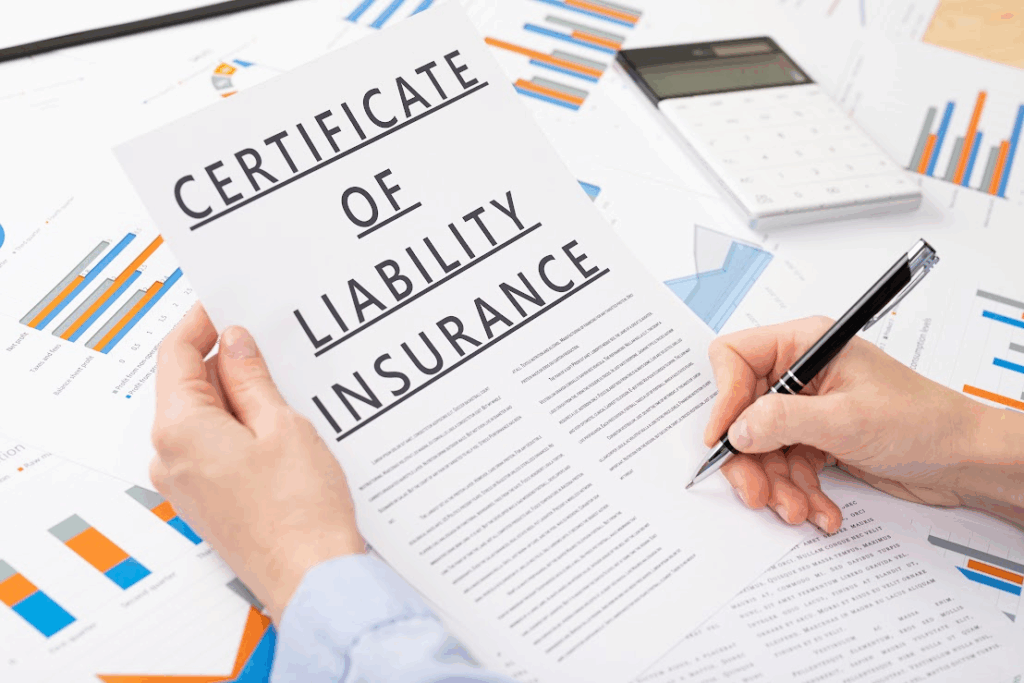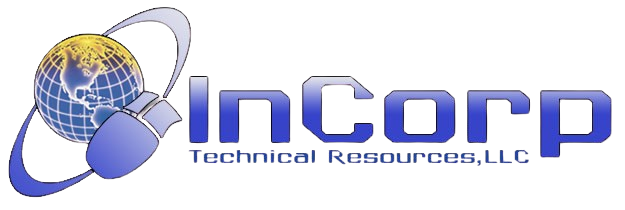
Managing risk is just as important as managing operations in today’s business world. One of the most critical protections a business can invest in is liability insurance coverage. Whether you run a small startup or an established company, the possibility of being held legally responsible for damages or injuries is real. Liability insurance acts as a financial shield, covering legal expenses, settlements, and claims resulting from a variety of incidents.
Understanding the Basics of Liability Insurance Coverage
Liability insurance coverage is a policy designed to protect individuals or businesses from the financial consequences of being found legally responsible for causing harm to others, whether through injury, property damage, or other forms of loss. Unlike property insurance, which safeguards your assets, liability insurance addresses claims brought by third parties due to accidents, negligence, or professional errors. This type of coverage helps pay for legal fees, medical expenses, repair costs, and settlements, and it can also extend to non-physical claims such as libel, slander, or reputational harm resulting from your business operations.
Types of Liability Insurance Coverage for Businesses
Different industries and business models come with unique liability risks, and various liability insurance coverage is tailored to those needs. Choosing the right combination of policies ensures that your business is protected against common and industry-specific threats. By understanding what each type of coverage offers, you can build a more comprehensive risk management strategy that aligns with your operations and legal obligations.
General Liability Insurance
General liability insurance is the most widely used form of liability insurance coverage, offering broad protection against third-party claims. It covers bodily injuries, property damage, and personal injury—such as slander or libel—due to your business activities. This coverage is often required in commercial leases and vendor agreements, making it a foundational policy for most companies
Professional Liability Insurance
Professional liability insurance, or errors and omissions (E&O) insurance, is crucial for businesses that offer professional services or consulting. It protects against claims of negligence, misrepresentation, or failure to deliver a promised service. This type of liability insurance coverage is essential for legal, financial, healthcare, and technology industries, where errors can have significant consequences.
Product Liability Insurance
Product liability insurance is essential for manufacturers, wholesalers, distributors, and retailers. If a product causes injury, illness, or property damage, this coverage helps pay for legal defense costs, settlements, and other expenses related to the claim. It is critical in industries where physical goods are sold to consumers or businesses, helping reduce financial exposure from product-related lawsuits.
Employment Practices Liability Insurance (EPLI)
Employment Practices Liability Insurance protects businesses against employee claims over workplace issues. These may include allegations of wrongful termination, discrimination, harassment, retaliation, or failure to promote. As employment-related lawsuits continue to rise, EPLI has become an increasingly important component of comprehensive liability insurance coverage.
Cyber Liability Insurance
Cyber liability insurance addresses the growing risk of digital threats, including data breaches, ransomware, and cyberattacks. This policy covers costs related to breach notifications, data restoration, regulatory fines, and legal expenses. With businesses relying more than ever on digital infrastructure, this liability insurance coverage has become critical for safeguarding sensitive information and maintaining customer trust.
What Liability Insurance Coverage Typically Includes
The scope of liability insurance coverage can vary depending on the type of policy and the insurer. Still, it generally includes several key protections that shield your business from financial harm when facing legal claims.
Bodily Injury
Coverage for medical expenses and legal costs if someone is injured due to your business operations. This may include injuries sustained on your premises or because of your services or products. It also covers associated costs like ambulance transportation, hospital bills, and rehabilitation when applicable.
Property Damage
Pays for damage your business causes to someone else’s property. Whether a contractor accidentally damages a client’s home or an employee breaks a customer’s equipment, this coverage steps in. It can also include damage caused by third-party vendors acting on your behalf.
Legal Defense
Legal defense coverage includes court costs, attorney fees, and judgments or settlements. Even if a claim is unfounded, the legal expenses alone can be substantial. Liability insurance ensures you have the resources to mount a proper defense without draining your business finances.
Personal and Advertising Injury
This coverage protects against libel, slander, copyright infringement, or false advertising claims. These types of claims can arise from marketing campaigns, online content, or public statements made by your business. This coverage helps protect your brand’s integrity and reputation in competitive markets.
Reputational Harm
Provides coverage if your business is sued for defamation or reputational damage. These lawsuits can stem from client disputes, online reviews, or public-facing communications that are alleged to harm another party’s image. Liability insurance helps cover legal costs and settlements associated with such claims.
However, policies usually do not cover intentional wrongdoing, criminal acts, or damage to business property. It’s important to review your policy to understand what is and isn’t included.
Why Liability Insurance Coverage Is Essential
Having liability insurance coverage isn’t just a wise precaution—it’s often a legal or contractual requirement imposed by clients, landlords, or regulatory agencies. Beyond fulfilling these obligations, it offers critical protection that allows your business to operate confidently. Legal disputes can be costly; even baseless claims can result in significant financial strain due to attorney fees, court costs, or settlements. Liability insurance helps absorb these expenses, preventing a single incident from threatening your business’s financial health or continuity. Additionally, it plays a key role in preserving your professional reputation by facilitating timely, responsible claims resolution. Whether you’re exposed to risks like customer injuries, product-related harm, or accusations of professional negligence, liability insurance is your first and most reliable line of defense.

How Much Liability Insurance Coverage Do You Need?
Determining how much liability insurance coverage your business needs depends on several key factors, including your industry, company size, number of employees, and the level of risk your operations involve. A tech consulting firm, for example, faces very different exposure than a construction company, and coverage should be tailored accordingly. While small businesses may begin with policies ranging from $500,000 to $1 million in coverage, high-risk or large-scale operations often require several million dollars in protection. When deciding on coverage levels, it’s essential to consider the worst-case scenarios in your industry, the size and scope of your typical contracts, and the potential cost of legal defense and settlements.
How Liability Insurance Coverage Differs From Other Insurance
It’s easy to confuse liability insurance coverage with other forms of business insurance, but each type serves a unique purpose in protecting your operations. Liability insurance protects your business from third-party claims—such as injury, property damage, or professional negligence—while other insurance policies focus on internal losses or employee-related issues. Understanding these policies’ differences is essential when building a well-rounded risk management strategy.
General Liability Insurance
General liability insurance protects your business when visitors, customers, or clients suffer injuries or property damage due to your operations. This coverage typically includes slip-and-fall accidents, damage caused during service calls, and even some legal defense costs. It’s considered the foundation of most business insurance plans.
Professional Liability Insurance
Professional liability insurance, or Errors and Omissions (E&O) coverage, protects businesses that offer professional advice or services. It covers claims related to negligence, missed deadlines, or errors in judgment that result in client losses. This type of coverage is crucial for consultants, lawyers, and other service-based providers.
Property Insurance
Property insurance protects your physical location and the assets inside it, such as equipment, inventory, furniture, and fixtures. It typically covers losses from fire, theft, vandalism, or natural disasters. Unlike liability insurance, this policy addresses damage to your own property, not that of others.
Worker’s Compensation
Worker’s compensation provides medical benefits and wage replacement for employees with job-related injuries or illnesses. It also protects employers from employee lawsuits related to those injuries. Most states require this coverage, making it a legal necessity for businesses with staff.
Cyber Insurance
Cyber insurance covers expenses related to data breaches, cyberattacks, and other technology-related liabilities. This insurance includes the cost of notifying affected customers, restoring compromised data, and addressing regulatory penalties. As digital threats increase, this form of insurance has become vital for companies handling sensitive information.
The Cost of Liability Insurance Coverage
The cost of liability insurance coverage varies widely depending on the specific characteristics of your business. Premiums are typically influenced by factors such as your industry’s inherent risk level, the size and geographic location of your company, annual revenue, and your history of past insurance claims. For example, a small boutique may pay only a few hundred dollars annually for basic general liability coverage. At the same time, a construction firm with higher risk exposure might face premiums in the thousands. Coverage limits, deductibles, and optional add-ons like policy endorsements or extensions can also significantly impact the overall cost. While paying a premium may seem like an ongoing expense, it’s a relatively small investment compared to the devastating financial consequences of a single lawsuit—particularly for businesses without adequate protection.
Common Exclusions in Liability Insurance Coverage
While liability insurance coverage offers broad protection, it’s essential to recognize that it is not all-encompassing. Most policies include clearly defined exclusions that limit what is covered, and understanding these exclusions is essential to identify potential gaps in your risk management plan. Standard exclusions typically include intentional acts or willful misconduct, certain contractual liabilities, employee injuries or illnesses (which are generally covered under workers’ compensation), damage to your property, and professional mistakes—unless specifically covered by a professional liability policy. Failing to account for these exclusions can expose your business, so carefully reviewing your policy is critical. Supplemental insurance or policy endorsements can be added to close these coverage gaps and provide more complete protection.
How to Choose the Right Liability Insurance Coverage
Choosing the right liability insurance coverage for your business is a multi-step process. You’ll want to assess your risks, understand the legal requirements in your industry, and compare policy options carefully. Here’s a simple approach:
Assess Your Business Risks
Look at what could realistically go wrong—customer injuries, employee conduct, defective products, professional errors, or cybersecurity threats. Identifying these risks helps you prioritize which types of liability coverage are most critical for your operations.
Understand Policy Types
Decide whether you need general liability, professional liability, cyber coverage, product liability, or a combination of several. Understanding how each policy functions ensures you don’t overlook key exposures unique to your industry.
Set Coverage Limits
Consider your assets, contractual obligations, and potential risks to determine how much protection you need. Choosing appropriate limits can prevent underinsurance and provide peace of mind in high-stakes situations.
Compare Providers
Evaluate policies on price, coverage details, claim support, and insurer reputation. Partnering with a reliable provider can significantly affect the claims process.
Review Annually
As your business evolves, so should your insurance. Regular reviews help you adjust your policy to match growth, new services, or shifting regulatory requirements.

Why Liability Insurance Coverage Matters
In today’s unpredictable and often litigious business environment, liability insurance coverage is more than just a precaution—it’s a fundamental safeguard for long-term success. It protects your finances, strengthens your legal defense, and preserves your reputation while allowing you to focus on growth and daily operations without constant worry. Whether launching a new venture or scaling an established company, having the proper liability coverage in place is essential to ensure stability and resilience. Don’t wait for a lawsuit or unexpected claim to reveal the gaps in your protection—investing in comprehensive liability insurance today could be the most crucial step you take to secure your business’s future.
To learn more about liability insurance coverage, visit the Incorp Technical Resources, LLC blog.
